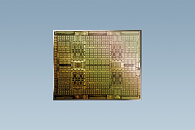Demon Max Launches "Guilty as Sock!" on Steam
D-DAY! The game is OUT for $4.95! The courtroom is open! Guilty as Sock! is out now, grab your socks and join the chaos. Enter a chaotic courtroom where socks play lawyers, prosecutors, and judges! Use absurd evidence, craft wild arguments, and deliver verdicts in this hilarious online party game. Improvise, strategize, and shout "Objection!"—because in Guilty as Sock!, chaos always wins!
The game is officially out now! If you have any feedback or suggestions, feel free to join our AWESOME Discord server! A huge thank you for all the support over the past few days, it truly means a lot to us, and we're so happy to see how excited you are about the game's concept! Since we're a very small team, we'll now be focusing all our efforts on improving the full game. That means we won't be updating the demo for a little while.
The game is officially out now! If you have any feedback or suggestions, feel free to join our AWESOME Discord server! A huge thank you for all the support over the past few days, it truly means a lot to us, and we're so happy to see how excited you are about the game's concept! Since we're a very small team, we'll now be focusing all our efforts on improving the full game. That means we won't be updating the demo for a little while.










































